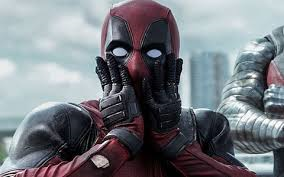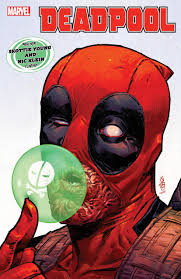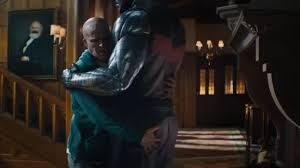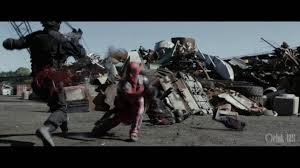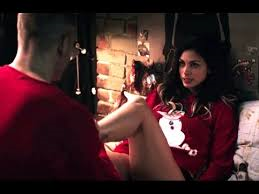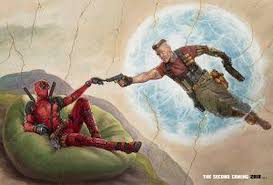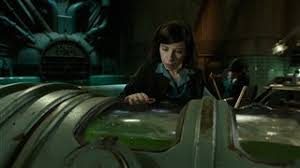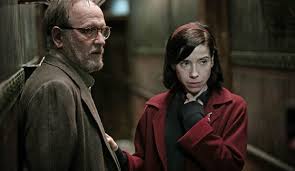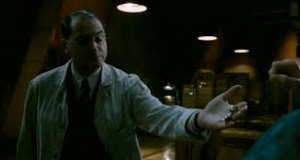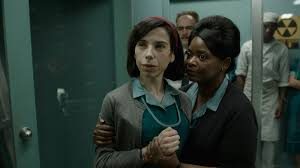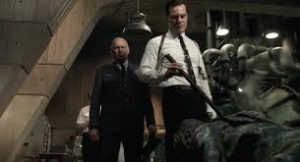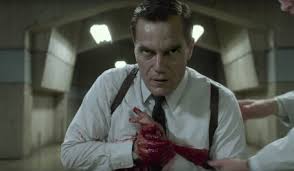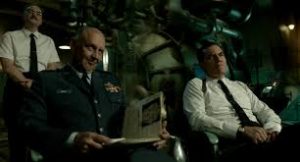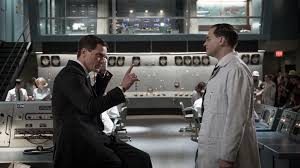SHORT TAKE:
Broadly comic, but largely forgettable morality tale of what happens when a well meaning schlub gets a shot at ultimate power.
WHO SHOULD WATCH:
Mostly more MATURE audiences for: language, some nudity, and high school level sexual humor, though no sexual activity is ever seen.
LONG TAKE:
If you take Bruce Almighty, (albeit without the brilliant theological underpinnings), add a page or two from Hitchhiker’s Guide to the Galaxy, add a touch of The Twilight Zone’s amusing “Mr. Dingle, the Strong”, a smidgeon of Bedazzled and package it all in Simon Pegg’s unique brand of wry humor, you get Absolutely Anything…. I don’t mean you can get “absolutely anything” as a description of the literal resulting outcome of this combination, but refer to the title of the movie: Absolutely Anything.
Despite disagreeing with much of Mr. Pegg’s philosophical opinions, I am a fan of his witty banter in his often clever film ideas (except for the occasional temper tantrum religion bashing, like Paul). Most of his repertoire, such as  Shaun of the Dead, Run Fat Boy Run, his tech expert
Shaun of the Dead, Run Fat Boy Run, his tech expert  Benji in the Mission Impossible films, his
Benji in the Mission Impossible films, his  Scotty in the reboot “Kelvin” version of Star Trek movies, his alcoholic desperate-to-relive-his-youth Gary King in the bizarre sci fi The World’s End, his adorable voicing of Reepicheep in Voyage of the Dawn Treader, and even his stint as The Editor in the Eccleston incarnation of Dr Who in “The Long Game” as well as many others, all benefited from Pegg’s gentle, self-deprecating, comic-timing master persona.
Scotty in the reboot “Kelvin” version of Star Trek movies, his alcoholic desperate-to-relive-his-youth Gary King in the bizarre sci fi The World’s End, his adorable voicing of Reepicheep in Voyage of the Dawn Treader, and even his stint as The Editor in the Eccleston incarnation of Dr Who in “The Long Game” as well as many others, all benefited from Pegg’s gentle, self-deprecating, comic-timing master persona.
Pegg excels best when he portrays a nobody who rises to the challenge of a truly bizarre situation to overcome seemingly insurmountable odds: a fat layabout in Run Fat Boy Run, who trains for a marathon to convince the mother of his child to stay in country. A burnt out idle human parasite who pulls himself together to defend his friends from invading robot aliens in
A burnt out idle human parasite who pulls himself together to defend his friends from invading robot aliens in 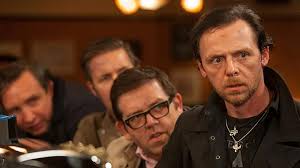 The World’s End.
The World’s End.
 In Absolutely Anything, directed by Monty Python veteran Terry Jones and written by Jones and Gavin Scott (the latter of whose resume consists mostly in kids’ versions of classic stories), Pegg’s Comic Champion once again plays out as reliably as Bruce Willis’ one-note but reliably entertaining Action Hero – nothing new or particularly surprising but an expected and fun formula, as satisfying as a tub of movie theater popcorn – nothing especially substantial to digest but delightful of which to partake.
In Absolutely Anything, directed by Monty Python veteran Terry Jones and written by Jones and Gavin Scott (the latter of whose resume consists mostly in kids’ versions of classic stories), Pegg’s Comic Champion once again plays out as reliably as Bruce Willis’ one-note but reliably entertaining Action Hero – nothing new or particularly surprising but an expected and fun formula, as satisfying as a tub of movie theater popcorn – nothing especially substantial to digest but delightful of which to partake.
SPOILERS
 Pegg’s Neil is a well meaning, average, albeit lazy teacher who longs to be a novelist and pines unrequitedly for his next door neighbor
Pegg’s Neil is a well meaning, average, albeit lazy teacher who longs to be a novelist and pines unrequitedly for his next door neighbor  Catherine (Kate Beckinsale).
Catherine (Kate Beckinsale).

 A group of bizarrely colorful aliens voiced by the surviving members of the original
A group of bizarrely colorful aliens voiced by the surviving members of the original  Monty Python’s Flying Circus:
Monty Python’s Flying Circus: John Cleese,
John Cleese,  Terry Gilliam,
Terry Gilliam,  Eric Idle,
Eric Idle,  Terry Jones, and
Terry Jones, and  Michael Palin, decide it is Earth’s turn to be tested for existence-worthiness by choosing a random human to see what he will do with complete power for 30 days.
Michael Palin, decide it is Earth’s turn to be tested for existence-worthiness by choosing a random human to see what he will do with complete power for 30 days.
If he chooses wisely Earth will not be destroyed. If he does not perform the way they think he should ……
Mayhem quickly ensues when misspoken, imprecise and casual remarks suddenly become reality, such as his frustrated snarky wish for the extraterrestrial destruction of the unruly middle school children he is assigned to teach, or that his love-smitten friend,  Ray, (Sanjeev Bhaskar from Paddington 2 and Drunk History) acquires the devotion of the girl of his dreams.
Ray, (Sanjeev Bhaskar from Paddington 2 and Drunk History) acquires the devotion of the girl of his dreams.  Of course, at first, thinking he is going insane, he can’t decide whether he should give up drinking or take up a LOT more of it. But, it doesn’t take long for Neil to begin testing his new “gift”.
Of course, at first, thinking he is going insane, he can’t decide whether he should give up drinking or take up a LOT more of it. But, it doesn’t take long for Neil to begin testing his new “gift”.
 It’s a one trick pony joke stretched out to a feature length movie. The special effects are B grade, it’s filmed like an uninspired TV movie, and the music sounds like it was pulled off a shelf of standards for fluffy comedies: forgettable light background phrases, bassoons for the punchlines – nothing particularly memorable or identifiable.
It’s a one trick pony joke stretched out to a feature length movie. The special effects are B grade, it’s filmed like an uninspired TV movie, and the music sounds like it was pulled off a shelf of standards for fluffy comedies: forgettable light background phrases, bassoons for the punchlines – nothing particularly memorable or identifiable.
It is Pegg’s comic timing and lovable putz persona, the delicious ad-libbed nature of the Python-ized aliens and
lovable putz persona, the delicious ad-libbed nature of the Python-ized aliens and 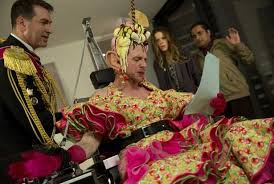 the complete balmy silliness of the situation that make this movie watchable.
the complete balmy silliness of the situation that make this movie watchable.
 Disappointingly, Robin Williams, in his last film appearance, is truly wasted as the voice of Pegg’s dog, Dennis. Unlike William’s genius Genie, or his merry Mork, or his dubious Doubtfire, or most any one of dozens of other roles,
Disappointingly, Robin Williams, in his last film appearance, is truly wasted as the voice of Pegg’s dog, Dennis. Unlike William’s genius Genie, or his merry Mork, or his dubious Doubtfire, or most any one of dozens of other roles,  Dennis is sweet but uninspired and could have been done just as well by any of a hundred other comics. William’s unique brand of quick witted brilliance was simply missing. Not that he was bad in the role but he just wasn’t – Robin Williams.
Dennis is sweet but uninspired and could have been done just as well by any of a hundred other comics. William’s unique brand of quick witted brilliance was simply missing. Not that he was bad in the role but he just wasn’t – Robin Williams.
But what Absolutely Anything truly lacks is what made Bruce Almighty such a worthwhile piece of memorable cinema – the learning curve for the protagonist that wisdom comes from humility. 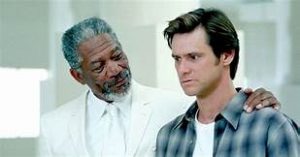 The awareness that absolute power in the hands of the limited creatures that we are leaves us with – absolutely nothing. That what will bring true happiness is genuine altruistic love for others of God’s Creatures, and submission to a power greater than ourselves, submission to God, who loves us infinitely … and who is a LOT more qualified to handle absolute power than we are.
The awareness that absolute power in the hands of the limited creatures that we are leaves us with – absolutely nothing. That what will bring true happiness is genuine altruistic love for others of God’s Creatures, and submission to a power greater than ourselves, submission to God, who loves us infinitely … and who is a LOT more qualified to handle absolute power than we are.
Now while there IS a moral – as such – in Absolutely Anything, it is short-sighted and focused mostly on Neil’s recognition that HE isn’t really the person to wield this much ability. Sort of the way liberals portray Socialism to us – not that NO human being should have this much power over others but that it’s just the RIGHT people have not yet bludgeoned the rest of the world with it.
The “moral” espoused in Absolutely Anything is Neil’s recognition that HE is not suitable, implying that it just is not in the right mortal hands. Dennis, actually makes the decision which gets closer to the truth.
While Bruce Almighty is the far worthier choice in a comic examination of whether humans are fit for “God-like” power, if you’re just looking for a brainless, fairly harmless 85 minutes of forgettable adult silliness, you could do worse than Absolutely Anything ——— and I mean the movie, not as advice.




